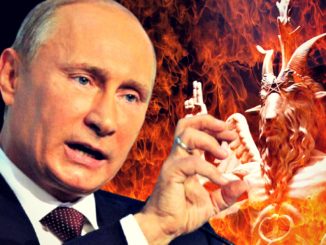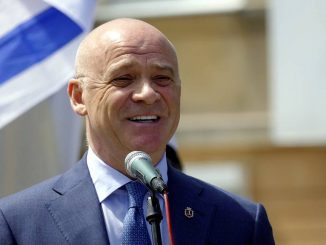
Commander in Chief of the Ukrainian Armed Forces Colonel General Oleksandr Syrskyi speaks with lawmakers during a parliament session in Kyiv, Ukraine November 19, 2024. Ukrainian Presidential Press Service/Handout via REUTERS/File Photo Purchase Licensing Rights
| Published April 30, 2025
Despite Russian President Vladimir Putin’s announcement of a three-day ceasefire from May 8–10 to commemorate the 80th anniversary of World War II’s end, Ukrainian forces report an escalation in combat activity. Ukrainian military commander Oleksandr Syrskyi stated that Russian troops have intensified their attacks, particularly targeting the strategic city of Pokrovsk in eastern Ukraine. This surge in hostilities raises concerns about the sincerity of Russia’s ceasefire proposal and the prospects for meaningful peace negotiations.
In addition to ground offensives, Russia has launched mass drone attacks on Ukrainian cities, including Kharkiv and Dnipro, resulting in civilian casualties and significant infrastructure damage. These actions further undermine the credibility of Russia’s ceasefire intentions and highlight the ongoing challenges in de-escalating the conflict.
The intensification of Russian military operations, despite public overtures toward peace, suggests a strategic approach aimed at gaining territorial advantages while projecting a willingness to negotiate. This dual strategy complicates diplomatic efforts and prolongs the humanitarian crisis in the region.
As the conflict continues, the international community faces the challenge of addressing the discrepancy between Russia’s stated intentions and its actions on the ground. Effective diplomatic engagement and sustained pressure may be necessary to achieve a genuine and lasting resolution to the war.
Implications of Renewed Russian Attacks Despite Ceasefire Talk
1. Erosion of Trust in Ceasefire Proposals
Russia’s continued military offensives amid its own ceasefire announcement severely undermines the credibility of any future diplomatic gestures. This erodes trust not only between Ukraine and Russia, but also among international mediators and stakeholders hoping for a negotiated end to the war.
2. Escalation Risks Ahead of Peace Efforts
The intensification of fighting near Pokrovsk and increased drone attacks on cities like Kharkiv and Dnipro suggest that Russia may be attempting to secure tactical gains before a possible pause in hostilities. This tactic could prompt Ukraine to respond with equal or greater force, derailing any meaningful ceasefire momentum.
3. Humanitarian Crisis Worsens
Continued shelling and drone strikes amid conflicting ceasefire signals leave civilians caught in the crossfire. This deepens the humanitarian toll, damages critical infrastructure, and places further strain on aid organizations already operating under dangerous conditions.
4. Tactical Messaging to the West
Russia’s behavior may also be intended to send a dual message: domestically, it shows strength and defiance; internationally, it presents a façade of cooperation while continuing its military objectives. This could complicate Western diplomatic and military strategies in supporting Ukraine.
5. Ukraine’s Defensive Posture Hardened
Ukraine’s leadership, especially under Commander Syrskyi, is likely to remain highly skeptical of Russian ceasefire overtures going forward. This hardens Kyiv’s resolve to maintain military readiness and could reduce flexibility in upcoming negotiations or international peace initiatives.
6. Increased Global Diplomatic Pressure
The discrepancy between Russia’s rhetoric and battlefield actions is likely to trigger stronger international condemnation. It may encourage Western allies to ramp up military aid to Ukraine or push for firmer actions at the United Nations or other forums.
Overall Takeaway
Russia’s intensified military actions—despite public declarations of a ceasefire—highlight a familiar pattern of strategic posturing that casts serious doubt on the sincerity of its peace overtures. For Ukraine, this underscores the necessity of remaining militarily vigilant and politically cautious in any engagement with Moscow.
As drone strikes and ground assaults escalate, the humanitarian toll deepens and the prospects for genuine de-escalation grow dimmer. The international community must reckon with the reality that, in this conflict, words and battlefield actions are often dangerously misaligned—demanding stronger accountability and support for Ukraine’s defense.
SOURCES: NEWSMAX – Ukrainian Commander: Russians Fighting More Intensely Despite Ceasefire Talk
REUTERS – Russians fighting more intensely despite ceasefire talk, Ukrainian commander says





Be the first to comment